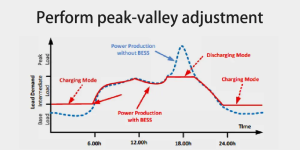Europe's Energy Challenges and Lithium Battery Opportunities in 2023

Europe has been facing energy difficulties in recent years, particularly in 2023, due to the ongoing political tensions between Russia and Ukraine. These tensions have resulted in disruptions in the supply of natural gas, which is a critical source of energy for many European countries. The disruptions have raised concerns about energy security and emphasized the need for more reliable and sustainable solutions.
Energy price changes
In 2023, the Russia-Ukraine conflict has continued to have a significant impact on energy prices in Europe. For example, the price of natural gas has been subject to fluctuations due to the uncertain supply of gas from Russia, making energy prices more volatile and putting a strain on households and businesses across Europe.
Given these challenges, there is growing interest in alternative energy sources such as lithium batteries as a way to address Europe’s energy problems in 2023. Lithium batteries offer high energy density, long cycle life, and excellent safety performance, making them suitable for use in various applications, including storage systems, backup power systems, and electric vehicles.
The growth of the lithium battery market in Europe
Several factors are driving the growth of the lithium battery market in Europe, including the increasing demand for renewable energy solutions. Lithium batteries are ideal for use in renewable energy systems like wind and solar power due to their high density and dependable performance. This is particularly relevant in Europe, where there is a significant push towards renewable energy in response to concerns about climate change and the need for more sustainable energy sources.
Another key driver of the lithium battery market in Europe is the growth of electric vehicles (EVs). Due to worries about air pollution and the demand for more sustainable transportation options, EV adoption is rising quickly in Europe.The market for lithium batteries in Europe is anticipated to develop as a result of the widespread usage of lithium batteries in EVs.
To fully achieve the promise of lithium batteries in Europe, there are still a few obstacles that must be addressed.One of these challenges is cost, as lithium batteries are still relatively expensive, making them less accessible.But it is anticipated that the price of lithium batteries will continue to fall as technology develops, making them more accessible.
Another challenge facing the lithium battery market in Europe is infrastructure. To fully realize the potential of lithium batteries, Europe must invest in necessary infrastructure such as charging networks and battery recycling facilities. This will require considerable investment and political support, but it is crucial if Europe is to fully take advantage of the opportunities presented by lithium batteries.
Conclusion:
In conclusion, Europe is facing energy difficulties as a result of political tensions between Russia and Ukraine, which have disrupted the supply of natural gas and raised concerns about energy security. To address these issues, there is a growing interest in alternative energy sources such as lithium batteries. Lithium batteries offer high density, long cycle life, and excellent safety performance, making them suitable for use in various applications. The market for lithium batteries in Europe is anticipated to develop over the next several years, despite certain obstacles including cost and infrastructure.With the proper investment and political support, lithium batteries have the potential to play a critical role in addressing Europe’s energy challenges and achieving a more sustainable energy future.











